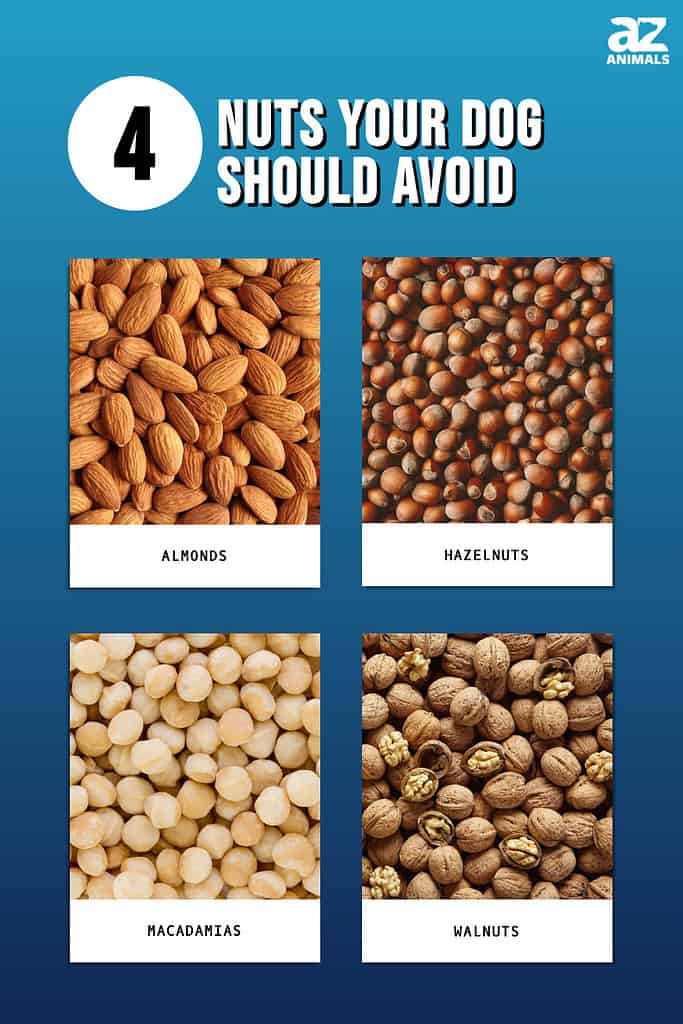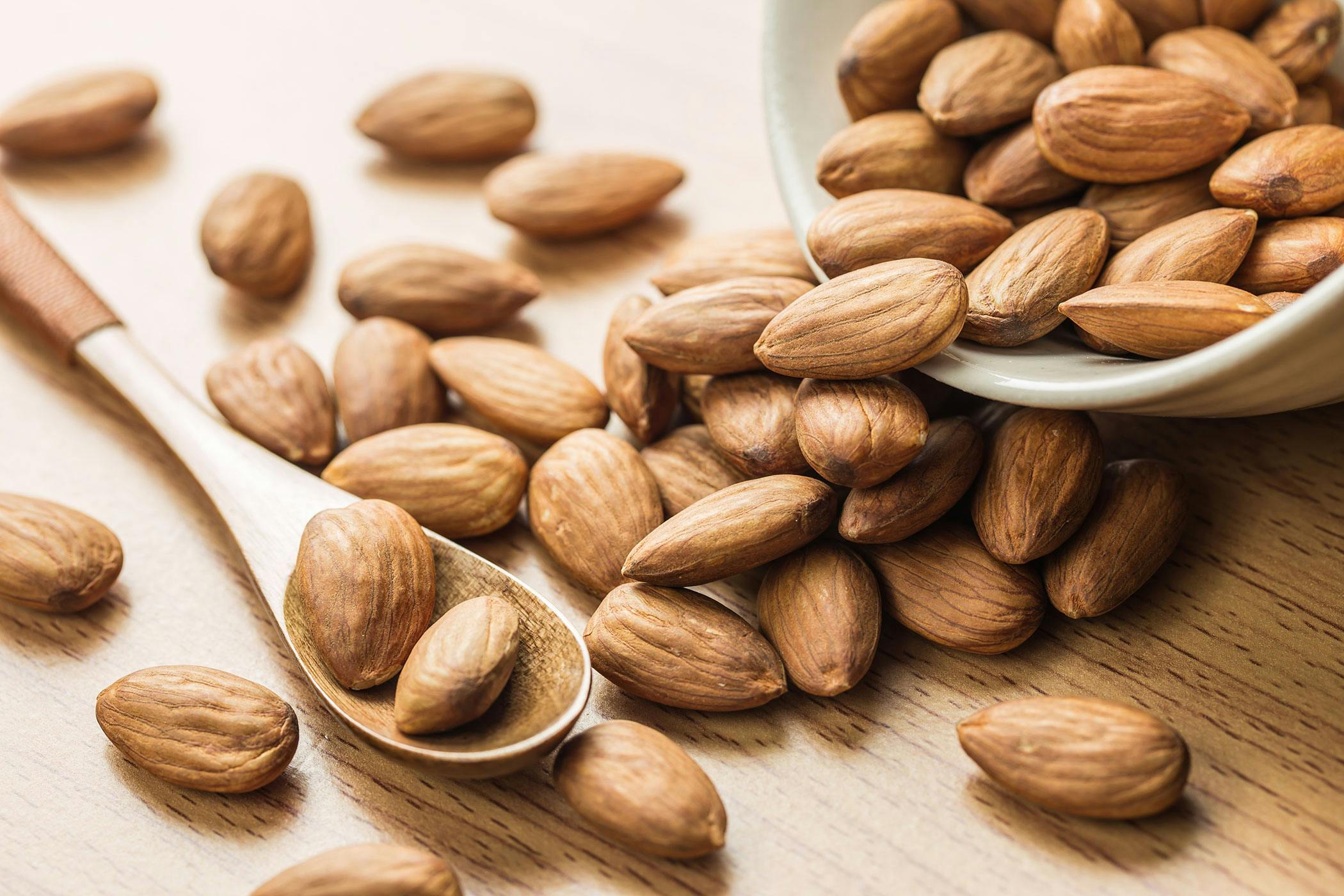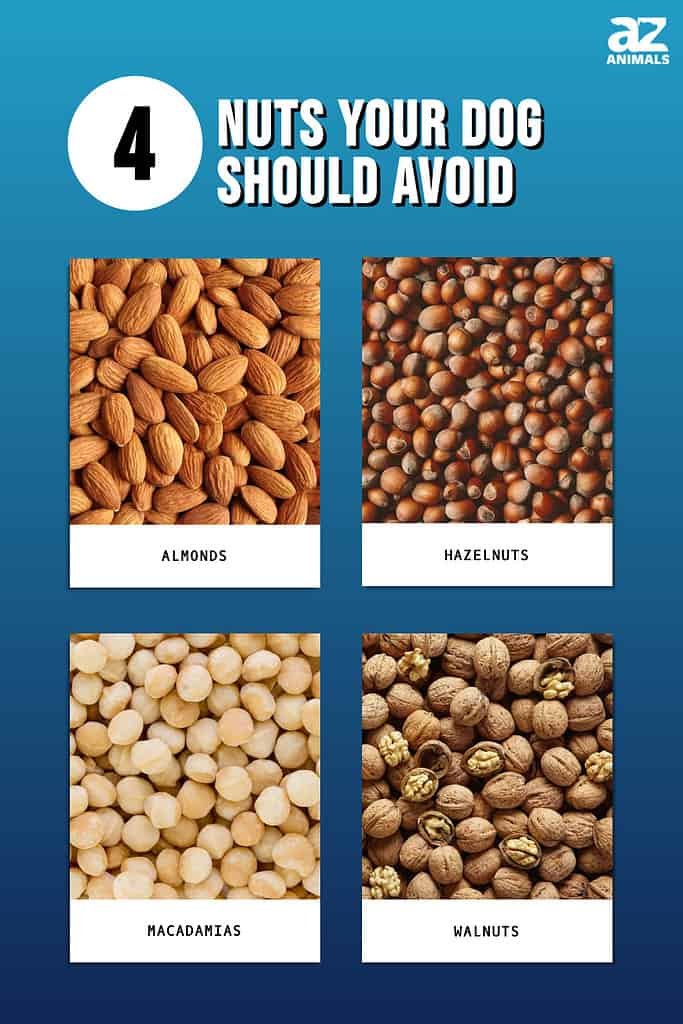As a professional, it is important to know that pitbulls should not be given almonds. While it may be tempting to share our favorite snacks with our furry friends, almonds can pose a potential health risk for pitbulls. Almonds are a choking hazard due to their size and hard texture, and they can also cause digestive issues such as stomach upset or blockages if ingested by pitbulls.
When considering the topic of whether pitbulls can have almonds, it’s crucial to understand their unique dietary needs and potential health risks. While almonds may seem harmless to us, they can be dangerous for pitbulls. As responsible pet owners, we should always prioritize their well-being by providing them with a balanced diet specially designed to meet their nutritional needs. Opting for safe and appropriate treats specifically made for dogs is a much better choice and ensures their health and safety.
Pitbulls should not be given almonds. While almonds are not toxic to dogs, they can be a choking hazard and cause digestive issues. Additionally, almonds are high in fat and can lead to pancreatitis in dogs. It’s best to stick to dog-safe treats and avoid sharing human food, especially nuts, with your pitbull. Instead, provide them with appropriate dog treats that are specifically made for their dietary needs.

Can Pitbulls Have Almonds?
When it comes to our furry friends, it’s important to know what’s safe for them to eat and what’s not. In this article, we’ll delve into the question of whether pitbulls can have almonds. Almonds are a popular nut that many humans enjoy, but are they suitable for our canine companions? Let’s find out!
Are Almonds Safe for Pitbulls?
While almonds are not toxic to pitbulls, they are not recommended as a regular part of their diet. Almonds can pose several risks to dogs, including the potential for choking hazards, gastrointestinal obstruction, and pancreatitis. These risks are especially prominent if the pitbull consumes almonds in large quantities or eats them whole without proper chewing.
If you occasionally want to give your pitbull a small treat, it’s essential to take precautions. Make sure the almonds are unsalted and unsweetened, as added salts and sugars can be harmful to dogs. Additionally, it’s important to remove the almond skins, as they can be difficult for dogs to digest. Chopped or crushed almonds can also be a safer alternative, as they are easier for your pitbull to eat and digest.
Ultimately, it’s best to consult with your veterinarian before introducing any new food into your pitbull’s diet. They can provide personalized advice based on your dog’s specific needs and health condition.
Pitbulls and Nut Allergies
Another concern when it comes to pitbulls and almonds is the potential for nut allergies. While rare, some dogs may develop allergies to certain types of nuts, including almonds. If your pitbull has never consumed almonds before, it’s important to monitor them closely for any signs of an allergic reaction.
Common symptoms of a nut allergy in dogs may include itching, hives, swelling, vomiting, diarrhea, and difficulty breathing. If you notice any of these symptoms after giving your pitbull almonds or any other type of nut, it’s crucial to seek veterinary attention immediately. Allergies can be severe and even life-threatening, so it’s always better to err on the side of caution.
If you’re unsure about your pitbull’s potential allergies or want to introduce new foods into their diet, consult with your vet. They can perform tests to determine if your dog has any specific allergies and guide you on the best dietary options for your furry friend.
Alternatives to Almonds for Pitbulls
If you’re looking for alternative treats that are safe and enjoyable for your pitbull, there are plenty of options to consider. Many fruits and vegetables make excellent snacks for dogs and can provide valuable nutrients. Some safe choices for pitbulls include:
- Sliced apples (without the seeds)
- Carrot sticks
- Blueberries
- Pumpkin puree
- Watermelon (seedless)
These options are not only nutritious but also safe for pitbulls to enjoy. Remember to always introduce new foods gradually and in moderation to avoid any potential stomach upsets. And, of course, consult with your vet for personalized recommendations suitable for your pitbull’s specific needs.
Additional Considerations for Pitbull Nutrition and Diet
Dietary Needs of Pitbulls
Pitbulls, like any other dog breed, have specific dietary needs to ensure their overall health and well-being. They require a balanced diet that includes high-quality protein, healthy fats, carbohydrates, vitamins, and minerals. It’s essential to choose commercial dog foods that are specifically formulated for pitbulls or large breeds, as they provide the appropriate nutrient profile.
Additionally, considering the age, weight, activity level, and any existing health conditions of your pitbull is crucial for determining the right amount and type of food to feed them. Consulting with a veterinarian or a professional dog nutritionist can help create a tailored diet plan for your pitbull.
Remember that treats, including almonds, should only account for a small portion of your pitbull’s overall diet. Providing a well-balanced, nutritious meal is the foundation for their health, while treats should be given sparingly and as an occasional indulgence.
Common Foods to Avoid
While almonds may not be suitable for pitbulls, there are other foods that should also be avoided to prevent potential health risks. Some common foods that can be harmful to pitbulls include:
- Chocolate
- Grapes and raisins
- Onions and garlic
- Avocado
- Caffeine
These foods can cause a range of issues, from gastrointestinal upset to organ damage in pitbulls. It’s crucial to educate yourself about dangerous foods and keep them out of your pitbull’s reach. If your pitbull accidentally ingests any of these foods, contact your veterinarian immediately for guidance.
Regular Veterinary Check-ups
Lastly, regular veterinary check-ups are an essential aspect of keeping your pitbull healthy. A professional veterinarian can monitor your dog’s weight, assess their overall health, and provide guidance on their nutrition. They can also address any concerns or questions you may have about your pitbull’s specific dietary requirements.
Veterinary visits also offer an opportunity for diet adjustments based on your pitbull’s changing needs as they grow older. Your veterinarian will stay up-to-date with the latest research and nutritional recommendations, ensuring your pitbull’s diet evolves along with them.
Conclusion
While almonds are not toxic to pitbulls, they are not recommended as a regular part of their diet due to potential risks. Almonds can pose choking hazards, gastrointestinal obstructions, and be problematic for digestion, especially if consumed in large quantities. It’s best to consult with a veterinarian before introducing any new food into your pitbull’s diet to ensure their safety and well-being.
Remember, when it comes to keeping your pitbull healthy, a well-balanced diet, regular veterinary care, and safe and appropriate treats are key. By prioritizing their nutritional needs and being mindful of potential hazards, you can ensure your pitbull lives a happy, healthy, and almond-free life!
Key Takeaways: Can Pitbulls Have Almonds?
- Pitbulls should not be given almonds as they can be harmful to their health.
- Almonds contain a substance called cyanide which can be toxic to dogs, including pitbulls.
- Ingesting almonds can lead to symptoms like vomiting, diarrhea, and difficulty breathing in pitbulls.
- In some cases, consumption of almonds can even cause pancreatitis or intestinal blockage in pitbulls.
- It’s important to provide your pitbull with a balanced diet that is suitable for their nutritional needs and avoids potentially harmful foods like almonds.
Frequently Asked Questions
In this section, we’ll answer some common questions about whether pitbulls can have almonds.
1. Can pitbulls safely consume almonds?
No, it’s not recommended to feed almonds to pitbulls. While almonds are generally considered safe for humans, they can pose risks to dogs, including pitbulls. Almonds can be difficult for dogs to digest due to their high fat content. Furthermore, almonds may cause gastrointestinal distress, such as stomach upset, vomiting, or diarrhea in dogs. The risk is even greater if the almonds are salted or flavored, as these can increase the chances of digestive issues or sodium poisoning in dogs.
If you suspect your pitbull has eaten almonds or any other potentially harmful food, it’s essential to monitor their behavior and contact your veterinarian if any symptoms or concerns arise.
2. Are there any health benefits for pitbulls to eat almonds?
While almonds may offer nutritional value to humans, there are no specific health benefits for pitbulls to consume almonds. Pitbulls have different dietary requirements, and their needs should be met with a balanced diet specifically formulated for dogs. Feeding almonds or other human foods as a regular part of their diet may unbalance their nutritional intake and lead to health issues.
If you’re looking to provide your pitbull with healthy and appropriate treats, it’s best to consult with your veterinarian and explore options specifically designed for dogs.
3. Are there any alternatives to almonds that pitbulls can safely eat?
Absolutely! There are numerous dog-friendly alternatives that pitbulls can safely enjoy as treats. Some examples include carrots, blueberries, sweet potatoes, and lean meats such as chicken or turkey. These alternatives provide various nutrients and can make for healthy and delicious treats for your pitbull.
Remember, it’s always important to introduce new foods gradually and in moderation to ensure your pitbull’s digestive system can handle them. If you’re unsure about what foods are suitable for your pitbull, consulting with your veterinarian is the best course of action.
4. What should I do if my pitbull accidentally consumes almonds?
If your pitbull accidentally consumes almonds, it’s crucial to monitor their behavior and watch for any signs of digestive distress. Symptoms may include vomiting, diarrhea, or any abnormal behavior. Contact your veterinarian immediately if you notice any concerning symptoms.
Additionally, it’s important to prevent your pitbull from accessing almonds in the future. Ensure that almonds or other human foods are securely stored and out of reach of your dog to avoid any accidental ingestion.
5. How can I ensure a balanced and healthy diet for my pitbull?
Providing a properly balanced and nutritious diet is essential for the overall health and well-being of your pitbull. It’s best to consult with your veterinarian to determine the specific dietary needs of your pitbull based on their age, weight, and any underlying health conditions.
A balanced diet for a pitbull typically consists of high-quality commercial dog food formulated for their specific life stage. This ensures they receive the necessary nutrients, proteins, and fats to support their growth and vitality. Avoid feeding your pitbull with table scraps, as it can disrupt their diet and lead to nutritional imbalances.
Remember, your veterinarian is the best resource for accurate dietary guidance and can provide personalized recommendations for your pitbull’s specific needs.

Can Dogs Eat Almonds? Are Almonds Bad for Dogs?
In this article, I have discussed the importance of adhering to certain criteria when writing a wrap-up. First and foremost, it is crucial to maintain a professional tone while also making the content suitable for a 13-year-old reader. This can be achieved by using a conversational tone and simple language, avoiding jargon that may be difficult to understand. Additionally, it is important to remember not to start or use the phrase “In conclusion” in order to keep the writing concise and avoid repetition. By following these guidelines, we can ensure that our wrap-up effectively summarizes the key points of the article.
In conclusion, when writing a wrap-up, it is essential to maintain a professional tone while also making the content accessible to a 13-year-old reader. By using a conversational tone, simple language, and avoiding jargon, we can effectively communicate the main ideas of the article. Remember to keep the sentences concise, with no more than 15 words each, and to present a single idea in each sentence. By adhering to these criteria, we can provide a clear and concise summary that resonates with the reader.
